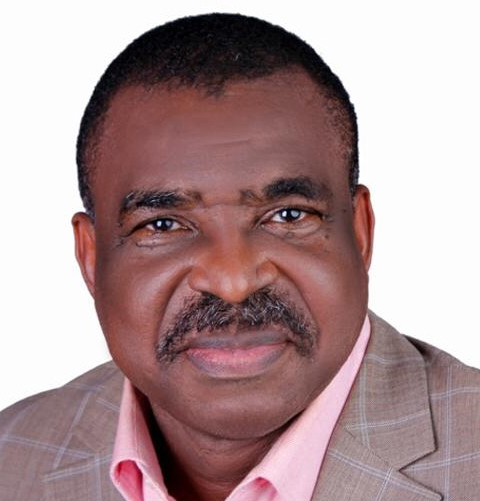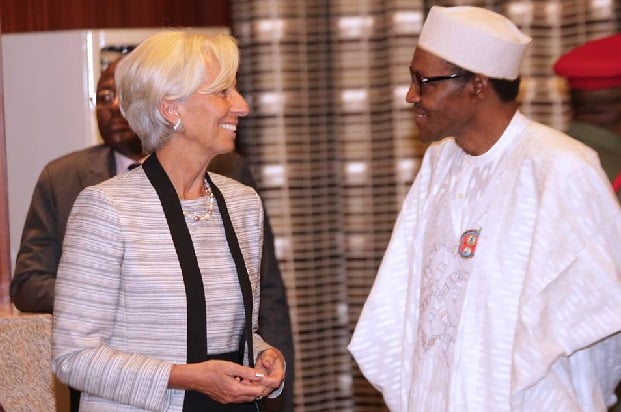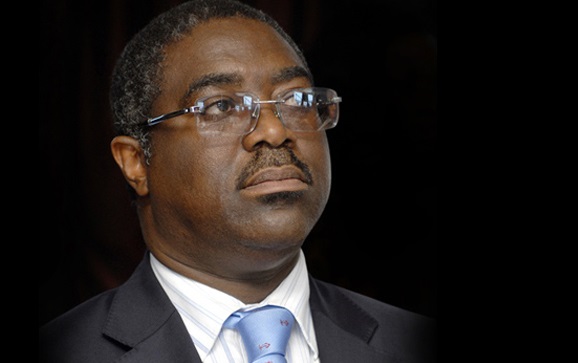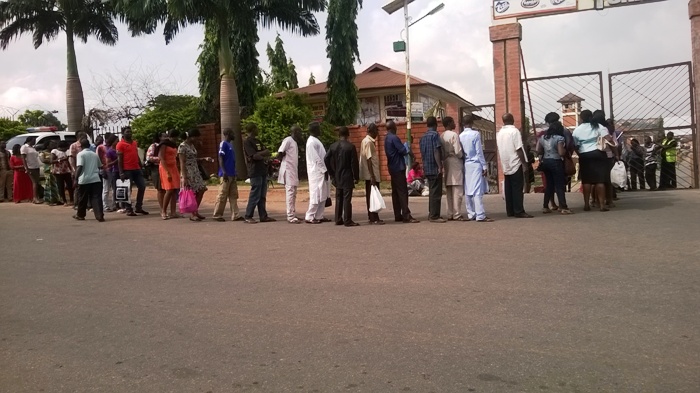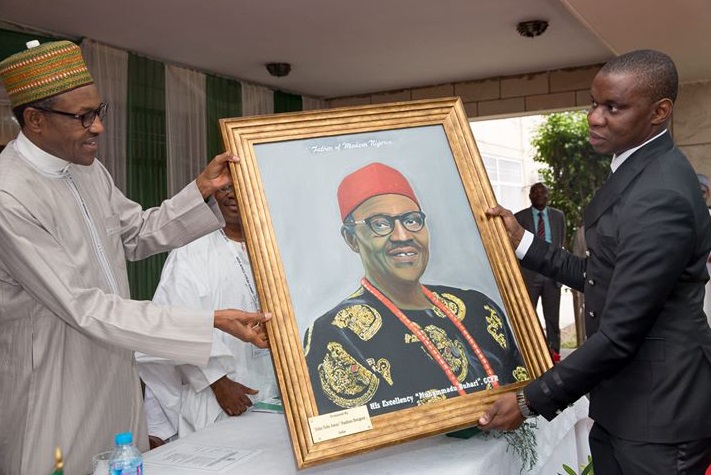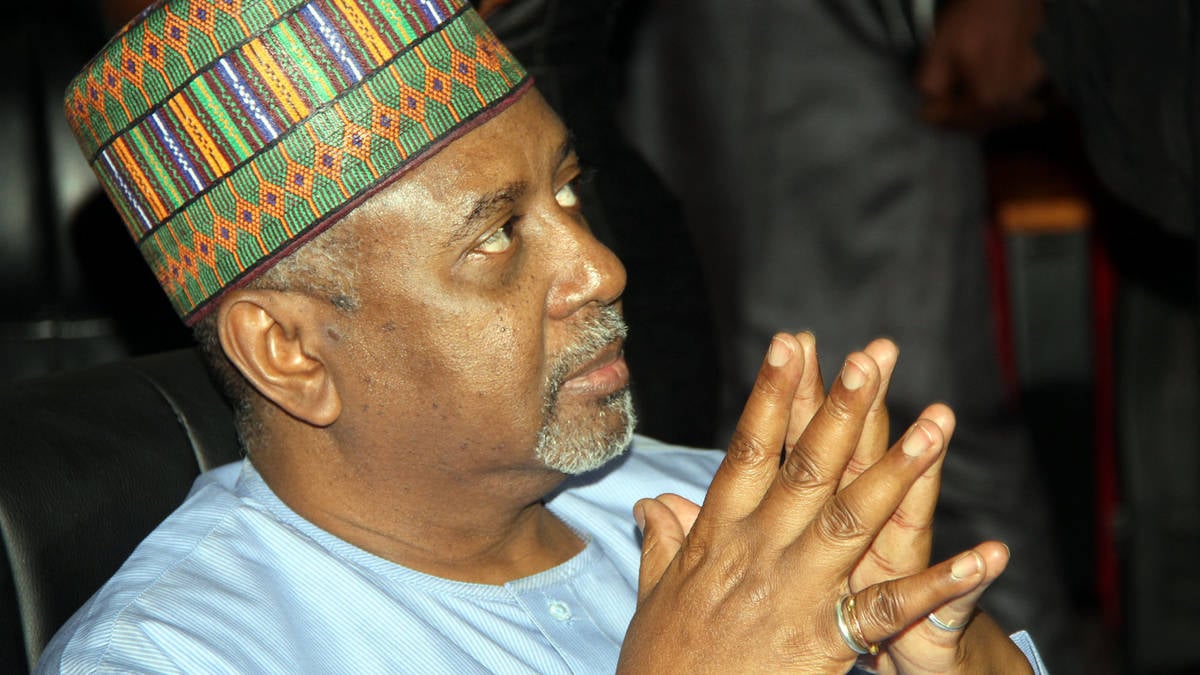Christine Lagarde, the Managing Director of the IMF, is in Nigeria. The last time the global financial intervention agency, IMF beamed its gaze on Nigeria (1985-6), was to convince govt to embark on financial reforms including devaluation of the naira.
I have heard many commentators lament that Nigeria’s economy is in dire straits similar to the situation in the mid 1980s compelling then army general, Muhamadu Buhari to oust the democratically elected govt of Shehu Shagari, which was accused of gross irresponsibility in governance whichotIn light of the centrality of the need to seek alternative means of generating revenue since robust oil income has become elusive, it behoves of govt to enlighten Nigerians who are wary of foreign loans,by making a connection between TSA and IMF which l reckon is expected to render technical assistance to Nigeria in the implementation of the TSA and facilitate more efficient and effective tax collection to boost govt’s revenue earning capacity which is quite commendable.
Viewed from the prism of the stance of Nigerians against IMF loan during the reign of army general, Ibrahim Babangida, IBB which toppled general, Muhamadu Buhari’s regime, some 30 years ago,a thorough understanding of the role of IMF in Nigeria by members of the public can not be taken fore-granted.
Keep in mind that IBB initiated a public debate on whether Nigeria should take IMF loan or not, resulting in Nigerians opting to say a resounding no to IMF and yes to a home grown Structural Adjustment Program, SAP in 1986.
Arising from the above,the inherent social value accruable from articulating clearly the presence of IMF in Nigeria need not be overemphasized.
Advertisement
Minister of economic planning, Udoma Udo Udoma, responsible for crafting the budget, has affirmed the rough road Nigerians are bound to travel- economy wise in 2016 and beyond,just as finance minister, Kemi Adeosun, charged with managing the economy, has alsomin asked Nigerians to brace up for the grit and grind on the road ahead which will not be lined with petals and roses.
As evidence of their plan to rely on borrowed funds, they have factored into their whooping N6.1 trillion budget proposal to NASS ,about N1.9 trillion or approximately 30% of the total budget to be sourced from loan.
Wether the credit facility would be from the IMF or regular local and international financial institutions like investment bank,Goldman Sachs etc is yet to be determined as neither the planning or finance ministers have offered explanations.
Advertisement
However, the existence of some critical economic and social development enablers in Nigeria makes the prospects of the nation’s economy surviving the global commodity price crash possible by leveraging on credit, provided the borrowings are properly applied in job creating and revenue yielding projects.
Such growth fundamentals are (1) abundant natural assets -sixth largest oil producer in OPEC (2)60% of population are youth and therefore of productive age with capacity to be translated into veritable workforce (3) burgeoning middle class and as such large consumer market with potential robust purchasing power (4) new govt with huge appetite for change and therefore without inhibition for reforms (5) lack of or decaying infrastructure therefore a huge opportunity for international investors to stake their funds in new roads,electricity power , agriculture, housing and transport infrastructure with verifiable and rapid return on investments (6)stable democracy that has transited peacefully from one ruling party to another without the much anticipated violence etc.
Unsurprisingly, the visiting IMF top shot, Lagarde alluded to the prevailing investment friendly climate in Nigeria when she addressed a joint session of congress, saying ” looking back four years ago, massive democratic changes have occurred in this country peacefully. Nigeria has become the largest economy in Africa, certainly the most populated and with a very attractive market”
We shall return to the critical fundamental elements that could be considered as the unique selling point, USP of Nigerian economy and could therefore serve as incentive and collateral to potential foreign investors, but first let’s identify the succor and palliatives that are supposed to serve as sweeteners to the generally bitter taste that the 2016 budget is expected to bring to the taste bud of generality of Nigerians, especially the poor.
Advertisement
Measures such as the planned N5,000 payment to the unemployed and poorest of the poor as social safety measure that would offer succor to the masses comes into focus.
The one meal a day for school children policy is another balm being proposed to soothe the pains expected to accompany some of the policy trust of govt in 2016.
So also is the planned conversion of unemployed graduates in the rural areas into teachers, an initiative aimed at drastically reducing poverty.
Undoubtedly,the masses deserve more succor and l foresee further policies in that direction, as the poor are usually the worst victims of harsh economic policies.
Advertisement
Despite the good intentions for the poor in the 2016 budget,the proposed increase by 50% of Aso Rock budget from N6.6 billion in 2015 to N18 billion,provision of N3.6 billion for purchase of unspecified number of BMW salon cars ostensibly for conference visitors and allocation of N1.75 billion for feeding in the seat of power which is a whooping jump from N530m in 2015 is absurd and leaves butter taste in the mouth .
Given the sacrifices that Nigerian masses are expected to make to move the economy out of doldrums, such budget provisions for Aso Rock which are ostentatious and antithetical to the personalities of president Buhari and Vice President Yemi Osibanjo,who are known to be frugal, need to be reviewed back to status quo ante.
It is hoped that our budget crafters (Udoma and Adeosun) who unlike Buhari are silver spoons are cognizant of the Roman philosopher Seneca’s proposition ” To always be fortunate, and pass through life with a soul that has never known sorrow, is to be ignorant of one half of nature”
Advertisement
My guess is that Mr president was rattled and taken aback by the revelations of excessive allocation of funds towards recurrent expenditures,(including the proposal to purchase vehicles amounting to several billions of naira by the legislature) during his recent media chat and l’m convinced that having listened to the concerns of Nigerians, the current talk about withdrawal or otherwise of the 2016 budget from the Congress for necessary amendments is in response to the anxiety oexpressed by long suffering Nigerians.
Perhaps introduction and implementation of zero billion
If such positive steps are taken indicating that govt is responding to the yearning of the masses, the portion of the budget allocated to capital expenditure, CAPEX which commendably is in excess of 30% and unprecedented in the annals of budgeting in Nigeria in the past decade,could result in the downsizing of the recurrent and further enlargement of the CAPEX in budget 2016.
Advertisement
As some commentators have pointed out,instead of purchasing conference visitors vehicles annually, why can’t Aso Rock lease same from the private sector thereby boosting the activities of leasing companies and the contribution of the sector to GDP.
While the earlier mentioned largess aimed at ameliorating the pains of the ordinary people in the lower rung of society are being awaited, the immediate good news is that , Ibe Kachikwu, minister of state for petroleum has announced a marginal reduction in petroleum pump price, which is sweet music in the ears of the masses , if the commodity can actually be purchased at that price.
Advertisement
Kachikwu spent Christmas in the refineries and the taps seem to have been turned on for the commodity to flow, at least through out the festive season. That clearly demonstrates the minister’s resolve to tame the economic monsters hell bent on inflicting the pains of fuel scarcity on hapless Nigerians by gaming the system.
Kachikwu who doubles as GMD of NNPC, the state oil company, also offered more cheering news when he revealed that one of the nation’s four refineries is back in production with the possibility of all the four going into production with capacity to produce up to 10 million litters daily (40m is purportedly Nigeria’s daily consumption) by the end of January.
Fortuitously, before the prospect of the palliatives expected to relieve the masses of anticipated pains arrive, also looming in the horizon,is the possibilities of a rebound of oil price that would reverse the current challenges compelling severe belt tightening.
The optimism is derived from the likelihood that the age long Sunni-Shiite divide currently threatening to degenerate into direct face-off between Saudi Arabia and lran, in the Middle East and Persia, may escalate and lead to disruption of supplies of crude oil into the saturated market by the two largest producers and thus wipe out the glut which could result in oil price rebounding to a region of $100 per barrel against popular predictions of $20.
Obviously, for now, the scenario painted above seems like a farfetched proposition as international oil pricing is usually dicey,but Nigeria’s budget is predicated on $38 dollars per barrel oil price and presently international oil price has fallen to $36 which is $2 less than Nigeria’s budget benchmark, so what gives the economic planning and finance ministers , the audacity of hope , for lack of a better term , that oil price would not further drop to the $20 level envisaged by Goldman Sachs and IMF?
Before responding to the poser above,let’s return to Nigeria’s unique selling point, USP and examine how such factors can enhance her economic fortunes.
The critical economic fundamentals referred to earlier as enablers are Nigeria’s vast assets-oil/gas reserves,large population, young and verily workforce, huge market size and new and stable govt with healthy appetite for reform plus dearth of infrastructure- which can be leveraged by the country to facilitate sovereign loan which has been long over due but unutilized .
Unsurprisingly, global investment bank , such as Goldman Sachs has recently been sighted in Nigeria offering credit facilities to the federal and state governments.It is noteworthy that it is the same financial institution that grouped Nigerian in to MINT- Malaysia, Indonesia, Nigeria and Turkey-representing acronyms of countries that the financial institution reckon would be the new global economic growth leaders. Considering that Goldman Sachs had earlier similarly categorized Brazil,Russia,India,China and South Africa into BRICS, countries to watch for superlative economic performance in the last decade,it is not surprising that the investment bank is staking heavily in Nigeria.
Indeed, this is remarkable and a welcome development as no economy can develop without external funding.
I’m personally not averse to loan or debt as it is the fuel required to drive the vehicle of growth and development for businesses or nations.
Sometime ago in the Western world, any business that is not borrowing enough to bolster operations is considered a candidate for hostile take over. So loan, debt or credit is good to both businesses and nations as long as it is judiciously applied to generate employment and yield income.
As l have emphasized in previous articles and particularly the one titled “Greece: Can Debt Be Good” , it’s external funds that helped develop economies like Dubai in the UAE so such endorsement of Nigerian economy is positive development .
Hopefully,IMF interest and presence in Nigeria would spur and galvanize the confidence of international community in Nigeria’s economy and its managers which may be a precursor to the much anticipated economic emancipation.
Certainly, the repose of confidence in Nigeria by major Western investment banks in my view is a dream come true as funding from such financial institutions are by far more stable than investments from portfolio equity managers who bring in ‘hot money’ and exit with the funds as soon as the economy suffers shocks.
In fact, l see a connection between the presence of investment banks in Nigeria in the past couple of months, IMF’s CEO’s current visit and the expected arrival of the funds’s technical experts next week, as Ms Lagarde stated.
Relatedly, in my view, it is a sort of testimony to the confidence that the international community repose in president Muhamadu Buhari who since his inauguration seven months ago,has been receiving accolades from leaders of the G7, who invited him to their meeting in Paris, France and the United States of America, USA where he was hosted by president Barack Obama, shortly after he was sworn into office.
Somehow mr president’s shuttle diplomacy, that was subject of criticism in some quarters,seem to be yielding bountiful results , but the commendable development has been largely unsung,perhaps because it is yet to dawn on mr president’s team that the current endorsements by the likes of IMF and IFC are part of what the G7 and Obama had in mind when they promised to help president Buhari succeed.
Returning to the poser on what economic planning and finance ministers,Udoma and Adeosun had in mind when they pegged crude oil price at $38 in budget 2016 when the commodity is currently trading at $36, perhaps they know what we don’t know and the concept is too sophisticated for the understanding of ordinary mortals hence they are keeping it to their chests.
Certainly, they would be required to explain their ‘secret’ to the senators (who are effectively their employers) when the members of the Red Chamber commence deliberations on the budget with a view to passing same into law.
Interestingly,as Nigeria and Nigerians face the future, one person that has truly changed so far is president Muhamadu Buhari.
Mr president has changed from being averse to loans to embracing the concept of credit to the extent that it constitutes over 30% of his maiden budget and his new interest in loans is also epitomized by his warm handshake with visiting IMF boss, Christian Lagarde in photographs adorning the pages of most Nigerian daily newspapers.
For the records,president Buhari detested debt so much so that he allegedly liquidated Nigeria’s foreign debt during his reign as military head of state and in the process inadvertently stalled further development of lagos metroline-a state wide mass transit train service,ostensibly because the project was being funded with foreign debt.
With his new approach to life, in my view,Buhari has accepted the past and he is facing the future.
On that note, allow me leave you with the following food-for -thought:
In the wisdom of the man nicknamed The Science Guy,Bill Nye ” The more you find out about the world, the more opportunities there are to laugh at it”
Drawing from the above philosophical ideology espoused by the American science educator ,Nye ,President Buhari must have found out more about life , governance and loans hence he appears to have embraced and acquiesced with them.
If that is the case, the task right now would be how to get the rest of us to be on the same page with president Buhari so that we can all pull in the same direction.
Onyibe, a development strategist, futurologist, former commissioner in delta state govt and an alumnus of Fletcher school of law and diplomacy, Tufts university, Boston , USA, sent this piece from Lagos.
Views expressed by contributors are strictly personal and not of TheCable.
Add a comment
